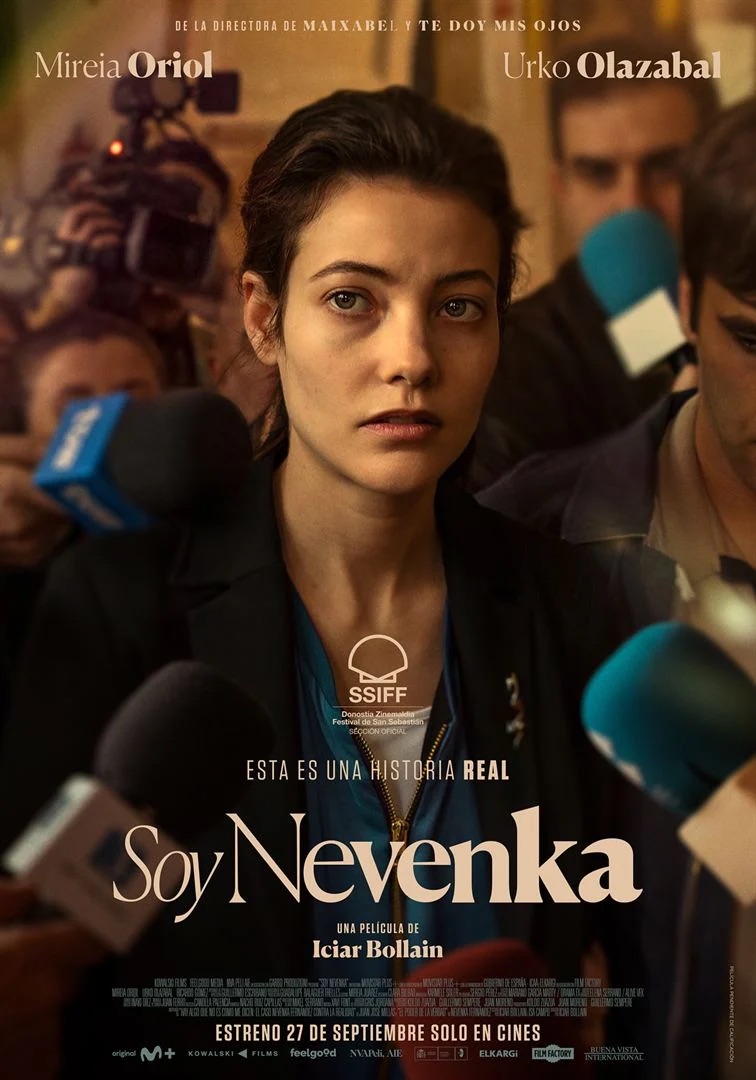
Aggression, humiliation and various forms of marginalization and even criminalization of women constitute a central vector in contemporary cinema. Right now The billboard offers stories about the loss of self-esteem due to the despised body (Tiger Stripes), the messianism of a maddened mother (The red virgin), a controlled and submissive wife (Just for me) and a young mathematician who has to survive in a patriarchal environment (Marguerite's theorem)to which will be added the wonderful miniseries To want by Alauda Ruiz de Azúa on unconscious and paternalistic machismo.
The so-called “Nevenka case” (why is the name of the victim always used instead of the aggressor?) marked, more than two decades ago, a turning point in the treatment of gender-based violence. Early 21st century society still required women to demonstrate resistance to rape and there was excessive “understanding” towards sexual abuse, which until then had only been penalised under certain conditions. The economist and Councillor for Finance of the Ponferrada Town Council Nevenka Fernández dared to denounce the continued abuse by the mayor of the Leonese town and obtained a conviction sentence revalidated by the Supreme Court. The punishment was minimal, limited to a fine and compensation; in fact, the Attorney General of the State had to replace the Attorney General of the High Court of Castile and Leon due to his aggressiveness and contempt towards the complainant.
Nevenka Fernández had to endure demonstrations in support of the already convicted mayor and ended up leaving the country. The former mayor presented his candidacy again years later and won five councillors. All this is discussed in the book by Juan José Millás There is something that is not as they tell me: The case of Nevenka Fernández against reality (2004) and the essential Netflix documentary miniseries Marigold (2001) directed by Maribel Sánchez-Maroto.
Icíar Bollaín and her co-writer Isa Campo return to this already known story in I am Nevenka which is competing this week at the San Sebastian Festival. The assertive title, affirming personality and identity —reminiscent of the Cervantine “I know who I am” by Alonso Quijano— establishes a point of view, a perspective that is essential to the story, since the continued aggression, the humiliations and threats, the sexual abuse of Mayor Ismael Álvarez have as their main result a deep psychological crisis and the annulment of personality. More damaging and persistent than a physical rape is this psychoaffective rape that humiliates and destroys the person, destroys their self-esteem and plunges their psyche into panic. Focused on the victim, the film makes us present the ordeal experienced by the economist from Ponferrada as seen by the deterioration of her body and mind. The film, then, seeks —and admirably achieves— empathy with this woman and emphasizes this by reducing to a minimum the social context, the specific events and the judicial disappointments. It may seem that the film lacks dramatic muscle or a development that would delve deeper into the events and give them greater universality.

Knowing the cinema of the always reliable Icíar Bollaín, it is not surprising that she is committed to portraying the assaulted person or victim.because that empathy with wounded women is present in the disoriented girl of Hello, are you alone? (1996), the immigrants of Flowers from another world (1999), the fighting teacher of Kathmandu, a mirror in the sky (2011), the young idealist betrayed by her family The olive tree (2016), the woman forced to take care of others Rosa's Wedding (2020) and, above all, the submissive wife and mother of I give you my eyes (2003), one of the essential titles of Spanish cinema of this century, which has been distributed in film clubs, civic centers, unions, universities and social and educational environments to the point of becoming, beyond all entertainment and spectacle, a paradigm of citizen intervention cinema.
I am Nevenka It reinforces its plausibility by playing the card of little-known or unknown actors who, with wise choice and direction, merge with the characters, so that the spectator is immersed in fiction as if it were reality itself.. With a remarkable narrative economy, without digressions or visual caresses to the spectator (the spectacle of violence is completely avoided) a profile of all those around Nevenka is drawn, achieving a portrait of Spain from a few years ago, still present, but, at the same time, so far away. Attention must be drawn to Ismael Álvarez, eloquently characterized as the rural chieftain who achieves power through the clientelism of those who sell favors and manages to internalize in the people that his life is a sacrifice for the people. This populism – perversion of all democracy – with many greetings in the street, getting any request, doing favors everywhere, generates in the mayor an omnipotent power to the point of not understanding the damage done to Nevenka, whom he has made a councilor of Finance and has given a social position in the city.
The denunciation of this aggressive paternalistic populism that turns citizens into subjects and perpetuates the subordinate role of women in a patriarchy now dressed up as “companionship” with women-quota is important in I am Nevenka Because without that context, the crime of sexual abuse cannot be understood, to which society has become more sensitive since those years.
Source: https://www.cineenserio.com/soy-nevenka-y-otras-trincheras/


